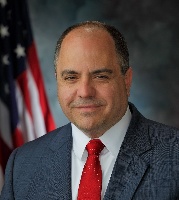Linwood Felony Lawyer, New York
Sponsored Law Firm
-
 x
x

Click For More Info:
-
Cohen & Bernstein, L.L.C.
1360 Clifton Ave #309 Clifton, NJ 07012» view mapCriminal Defense We’re In this Together!
We work hand in hand with our clients to ensure all of your questions are answered and progress through your legal issue is seamless.
800-978-7341
Not enough matches for Linwood Felony lawyer.
Below are all Linwood Criminal lawyers.
Raymond Paul Sciarrino
✓ VERIFIEDSciarrino & Sciarrino, P.C. is a criminal law firm serving Rochester and the surrounding areas of Livingston County and Wyoming County. For more than ... (more)
Susan Kathleen Duke
✓ VERIFIEDI consider communication to be a key aspect of the lawyer-client relationship, which is why I return phone calls and emails promptly. My clients have ... (more)
Gregory A. Franklin
✓ VERIFIEDAn adoptive parent himself, Gregory Franklin has experienced first-hand the challenges and joys of adopting a child. Adoptions involve a highly emotio... (more)
Michael Schmitt
FREE CONSULTATION
CONTACTFREE CONSULTATION
CONTACT Lindsay Bernstein Clifton, NJ
Lindsay Bernstein Clifton, NJ Practice AreasExpertise
Practice AreasExpertise



